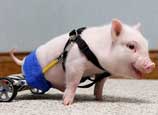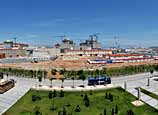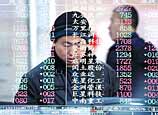
ARMS sales by the 100 biggest weapons makers fell for the first time since the mid-90s in 2011 as economies slowed and military equipment purchases were reduced for operations in Afghanistan and Iraq, a leading think-tank said yesterday.
Sales totaled US$410 billion, a 5 percent fall adjusted for currency swings, from US$411 billion in 2010, the Stockholm International Peace Research Institute, which carries out independent research on international security, armaments and disarmament, said in a statement.
SIPRI, which has been compiling the list since 1989, does not include Chinese-based firms due to lack of available data.
"Austerity policies and proposed and actual decreases in military expenditure as well as postponements in weapons program procurement affected overall arms sales in North America and Western Europe," it said in a statement.
"The drawdowns in Iraq and Afghanistan and the sanctions on arms transfers to Libya also played a role."
Spending fell for the first time since the mid-90s, when defense spending had been falling after the end of the Cold War, SIPRI researcher Susan Jackson said.
Sales growth had already slowed in 2010, to 1 percent from 8 percent in 2009, as the withdrawal of foreign troops from Iraq cut demand.
To the extent arms makers are affected by economic swings, many are late-cyclical as they have long delivery times and long-running contracts with governments.
Of the firms monitored by the group in 2011, 74 were based in the US and Western Europe, generating 90 percent of the sales, roughly unchanged from 2010.
The top spots were little changed from 2010 with US firm Lockheed Martin still the biggest, Boeing, overtaking British BAE Systems as No.2, and General Dynamics overtaking Northrop Grumman as No.4.
SIPRI said a strong recent trend among big arms makers was diversification into cyber-security - protecting computers and networks against intrusions and attacks - as public spending in this area remained a privileged area in Western countries despite budget austerity.
"Diversifying into cybersecurity enables arms-producing companies to widen their civilian customer base, for example to reach governmental agencies or private operators of critical infrastructures, and at the same time develop technical competences for electronic warfare for the military market," it said.
















 A 9-year-old son takes good care of his amputee mother: "adults have a priority over delicious meals"
A 9-year-old son takes good care of his amputee mother: "adults have a priority over delicious meals"


![]()
